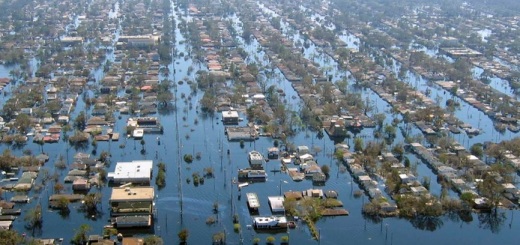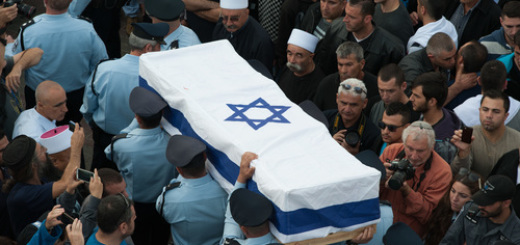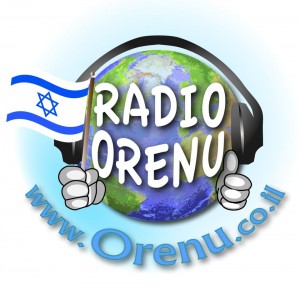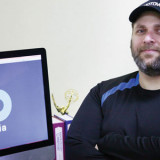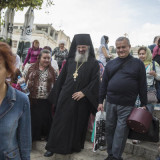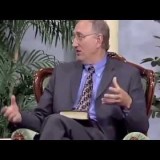HOLOCAUST TOUCHES HEARTS OF IRANIANS
 Fifteen young men and women of Iranian descent who now live in Britain met on Tuesday in Haifa with Holocaust survivors and heard, for the first time in their lives, stories about life in the concentration camps and life in the ghettos.
Fifteen young men and women of Iranian descent who now live in Britain met on Tuesday in Haifa with Holocaust survivors and heard, for the first time in their lives, stories about life in the concentration camps and life in the ghettos.
The young members of the Church of Light were born mostly Muslims and converted after moving to England. Many of them still have relatives who live in Iran. According to them, their meeting with Holocaust survivors via the Yad Ezer La Haver organization was one of the highlights of their two-week visit to Israel.
Shoshana Kolmer was sent at the age of 21 to Auschwitz. She showed the group the number tattooed on her arm and told them about life in the camp, her family which perished and about being sent from camp to camp through the end of the war.
“Even when I had typhus and other diseases, I did not dare to go and see a doctor because it was the end, they would kill me,” she  said.
said.
Team Leader Darius Zrian knelt before Kolmer and said, “It is a privilege and a great honor for us to hear about your life. It is difficult to accept and understand what happened to you and the other people who experienced the Holocaust. Perhaps only God can.”
He said that as a child, he was raised to hate Israel. “I am from Hamadan in southern Iran. Every morning at school the day was opened with the shout, “Death to Israel.” Only years later when I became a Christian, I realized it was the religious land of Abraham, Isaac and Jacob. I’m very happy we came here and heard these things.”
Estee Lieber was five years old when the Germans burned the house and killed her parents. For two-and-a-half years, she hid in the woods and during the meeting sought to convey a message to the Iranian president who denies the Holocaust: “I would like (Mahmoud) Ahmadinejad to look me in the eyes and say to my face that it did not happen. I who did not have a childhood. All I have left is a father buried in the woods.”
Sarah, who has lived in England for almost 20 years, was a child when she left Iran and admitted that she felt ashamed to hear the Holocaust denial in question.
 “I always knew that things really happened, but it was still shocking to hear first hand about the violence inflicted by man. I was in shock when I heard that Ahmadinejad denies the Holocaust. I was embarrassed from the ignorance, and frustrated. Really, we have no way to influence the Iranian government, but we can pass on the stories we’ve heard here.”
“I always knew that things really happened, but it was still shocking to hear first hand about the violence inflicted by man. I was in shock when I heard that Ahmadinejad denies the Holocaust. I was embarrassed from the ignorance, and frustrated. Really, we have no way to influence the Iranian government, but we can pass on the stories we’ve heard here.”
Shimon Sabag, founder of the host institution Yad Ezer La Haver said that this was one of the most exciting meetings he had experienced in his 20 years with the program.
“This meeting was outside the box. There is paramount significance to the fact that Iranian expatriates will tell the story and spread it. There was great satisfaction to see the productive dialogue between the young and the survivors,” Sabag said.
“The survivor’s greatest fear is that one day they will stop telling their stories. Here they had an opportunity to tell the story and see that it would move onto a place where Holocaust deniers live and act,” he added.

